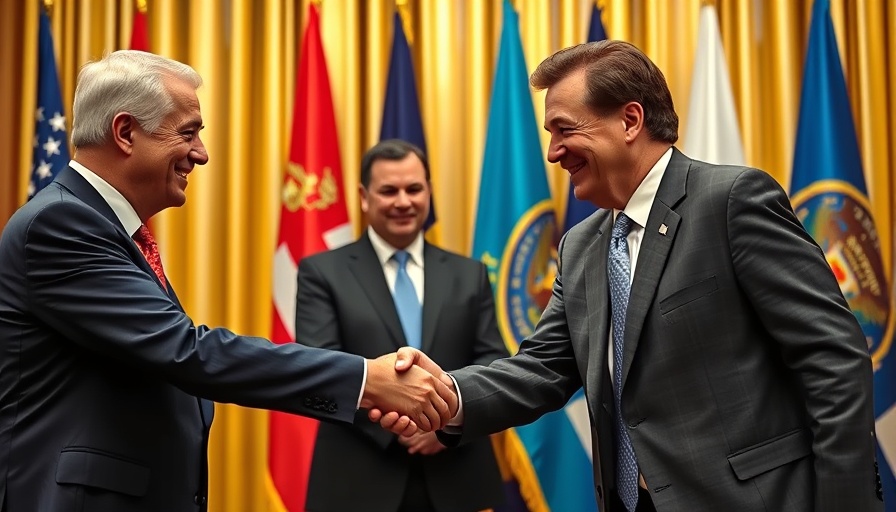
Understanding the New Trade Deal with Great Britain
The recently announced trade deal between the United States and Great Britain signals a significant shift in international relations and economic strategy. President Trump's administration is taking a firm stand, calling for allies to act like true partners or risk aligning themselves with China. This new approach aims to create a level playing field in global trade, striving for reciprocity and fairness, which is something many believe was long overdue.
In 'Breakdown: What Trump's Huge Trade Deal With Great Britain Means for America & Global Trade', the discussion dives into the implications of the new trade arrangement, exploring key insights that sparked deeper analysis on our end.
Tariffs: The New Normal?
Tariffs have long been a part of global trade; almost every nation utilizes them as a tool to protect their markets. Trump's administration is finally recognizing this reality and responding accordingly. Critics often label tariffs as harmful; however, history shows they are a common practice across nations. In fact, the new trade arrangements promise to not only cut tariffs on American goods but also eliminate unfair barriers that have previously hampered U.S. exports.
The Benefits for American Agriculture
American farmers and ranchers stand to benefit tremendously from this deal, particularly in the beef sector. With tariffs on American beef exports expected to dramatically decrease, market access will widen significantly. As speakers pointed out, American beef is considered some of the best quality in the world, and this trade agreement intends to highlight that fact. For many in the agriculture industry, the prospect of increased exports is a beacon of hope in an otherwise turbulent economic landscape.
Setting a Path for Future Trade Agreements
This agreement with Great Britain could serve as a template for future trade deals, encouraging other nations to step up and establish fair relations with the U.S. The implications of this strategy extend beyond bilateral agreements; they ripple through economic systems worldwide. Countries like Vietnam and Italy are already observing and adjusting their trade practices in light of this new reality, encouraging a shift towards fairness in international commerce.
What's Next for Global Trade?
The implications of the U.S. adopting a tougher stance on trade could encourage more countries to reconsider their economic relationships. Throughout the video, a constant theme emerges: nations must choose between aligning with the principles of democracy and fairness or succumbing to the influence of authoritarian regimes like China. As history shows, the repercussions of these choices will shape the global economic landscape for years to come.
In conclusion, the trade deal with Great Britain represents more than just an economic adjustment; it's a strategic move in reshaping how the United States interacts with the world. As America seeks to champion fairness in trade, the hope is that countries around the globe will follow suit—ensuring a future where democracy and shared values prosper. If you’re interested in following how these developments will unfold, stay engaged with economic discussions and be part of the conversation on America's role in the world.
 Add Row
Add Row  Add
Add 




Write A Comment